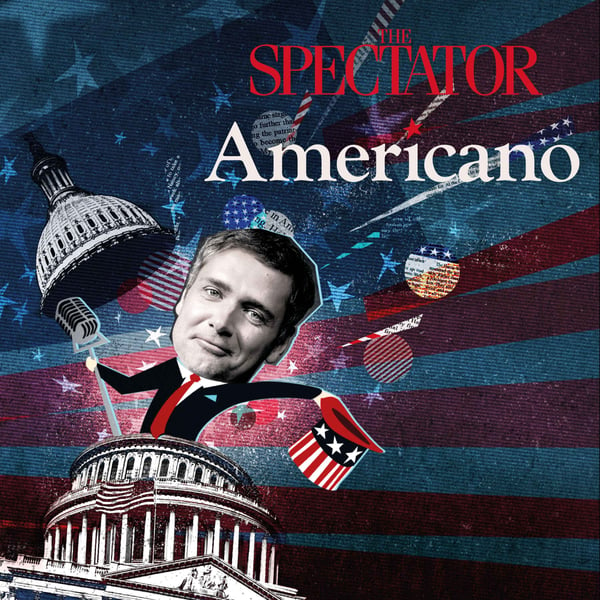How to save liberalism
Americano
The Spectator
4 • 714 Ratings
🗓️ 19 June 2024
⏱️ 41 minutes
🧾️ Download transcript
Summary
They also cover Fareed's new book, Age of Revolutions, which asks one central question: what are the causes of the seismic social disruptions we are going through and the political backlashes that have ensued?
Transcript
Click on a timestamp to play from that location
| 0:00.0 | The stage is set. Get a front row seat in the run-up to the election by subscribing to The Spectator for just three pounds for three months. |
| 0:06.9 | We'll even send you a free election mug. Go to spectator.co.com.uk forward slash mug. |
| 0:18.5 | Hello and welcome to the Americano podcast, a series of discussions about American politics, power and prejudices. |
| 0:28.6 | This year, 2024, is an election year in America, a presidential election year. |
| 0:35.0 | And so we will be doing two podcasts a week, rather than our usual one, |
| 0:39.6 | because we want to and because we know you can't get enough Americano in your life. |
| 0:44.5 | Today we're going to be talking about revolutions, because this book is now out, |
| 0:49.6 | The Age of Revolutions, Progress and Backlast from 1600 to the present by the very distinguished |
| 0:56.8 | Farid Zakaria, who I'm delighted to say joins me here in the Spectator's office. Forreed, |
| 1:02.2 | thank you very much for coming in. It's a huge pleasure to be here. So progress and backlash from |
| 1:06.4 | 1600 to the present. The sort of drift of this book, I think, is that liberalism is a |
| 1:14.2 | revolutionary thing. There are constant revolutions disruption, which leads to technological change, |
| 1:21.2 | which leads to disruption, I should say, which leads to identity crisis, which leads to |
| 1:26.3 | disorder, upheaval and so on. And this has been |
| 1:29.4 | going on for a long time. And so even though today a lot of people feel we're living in a sort |
| 1:33.9 | of revolutionary age, what you're saying essentially is this has been the case for some time. |
| 1:39.0 | Exactly. I think you heard exactly right. The way I see it, ever since the beginning of the kind of liberal enlightenment project |
| 1:46.4 | and the application of those ideas in states, you know, in the Netherlands, in Britain, in America, |
| 1:54.6 | what you've seen as this pattern of technological, economic progress, transformations, which then produce identity transformations. |
| 2:05.4 | I mean, you see it right with the Dutch, where as they start to succeed, they start to think |
| 2:09.5 | of themselves as differently. We're not part of the Habsburg Empire. We're Dutch. We're not part |
| 2:14.7 | of Christian Europe. We're Catholic. I'm sorry, we're Protestant. We're not part of Christian Europe. We're Catholic. I'm sorry, we're Protestant. We're |
... |
Please login to see the full transcript.
Disclaimer: The podcast and artwork embedded on this page are from The Spectator, and are the property of its owner and not affiliated with or endorsed by Tapesearch.
Generated transcripts are the property of The Spectator and are distributed freely under the Fair Use doctrine. Transcripts generated by Tapesearch are not guaranteed to be accurate.
Copyright © Tapesearch 2025.

